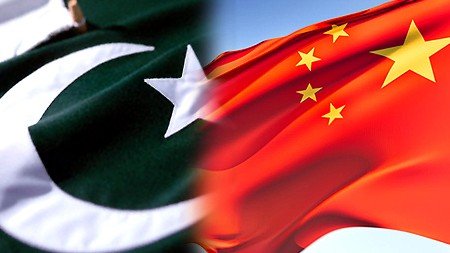China has again bailed out Pakistan as it agrees to immediately provide $1.5 billion financing line to repay the $2 billion Saudi Arabia debt, sources told The Express Tribune.
Out of $2 billion, Pakistan is now set to return the $1 billion on coming Monday, said the sources in the finance ministry and the State Bank of Pakistan (SBP). The remaining $1 billion is due in January, they added.
However, this time around, China has not given the loan from its State Administration of Foreign Exchange, commonly known as SAFE deposits, nor has it extended a commercial loan, said the sources.
Instead, both the countries have agreed to augment the size of a 2011 bilateral Currency-Swap Agreement (CSA) by an additional 10 billion Chinse Yuan or around $1.5 billion, the sources said. This has increased the size of the overall trade facility to 20 billion Chinese Yuan or $4.5 billion.
The CSA is a Chinese trade finance facility that Pakistan has been using since 2011 to repay foreign debt and keep its gross foreign currency reserves at comfortable levels instead for trade related purposes.
The benefit of this arrangement will be that the additional $1.5 billion Chinese loan will not reflect on the book of the federal government and it will not be treated as part of Pakistan’s external public debt.
Spokespersons for both the SBP and the finance ministry neither denied nor confirmed the development. The spokesperson for the central bank ducked the questions while the ministry of finance said that it was a “bilateral confidential matter”.
The Express Tribune had sent questions to the SBP about the CSA and a delay in uploading data on currency circulation, M2, on its website. “The M2 data will be updated soon on the website” was the terse response of the central bank, while maintaining silence on the question of currency deal.
What is CSA?
The bilateral Currency Swap Agreement was reached between the SBP and the Peoples Bank of China (PBOC) in December 2011 “in order to promote bilateral trade, finance direct investment and provide short-term liquidity support”, according to the central bank.
The original agreement had been renewed in December 2014 for a period of three years with overall limit of 10 billion yuan or $1.5 billion. It was further extended in May 2018 for a period of three years, with the amount being increased to 20 billion Yuan or $3 billion.
This agreement will expire in May next year, which the central bank has decided to request China to further extend it for three more years.
The central bank’s financial statement for the year 2019-20 showed that the SBP utilised 20 billion yuan or Rs475 billion.
Pakistan paid Rs20.5 billion in interest to China on using the $3 billion trade finance facility in the last fiscal year alone, showed the central bank’s financial statement.
China has become Pakistan’s largest creditor for the past few years. The trade facility, originally meant to promote bilateral trade in respective local currencies, has been used for paying foreign debt.
The $3 billion money is part of the current $13.4 billion in foreign currency reserves held by the central bank, the SBP had confirmed to The Express Tribune last month.
After coming into power, Prime Minister Imran Khan had twice flown to Saudi Arabia to secure the package, which provided space to the first-timer PTI government to negotiate a deal with the International Monetary Fund (IMF).
Saudi Arabia had agreed to provide $6.2 billion worth of financial package to Pakistan for three years. This included $3 billion in cash assistance and $3.2 billion worth of annual oil and gas supply on deferred payments.
As per the agreement, the Saudi cash and oil facility was for one year with an option to roll over the amount at the end of the year for a period of three years.
The Kingdom has claimed back its money ahead of the schedule. Pakistan was paying 3.2% interest on the $3-billion facility, according to the information that the Ministry of Finance shared with the National Assembly.
The Saudi oil facility has already been suspended, while Pakistan has also paid back Saudi Arabia $1 billion out of the $3 billion in May this year. Pakistan returned $1 billion to Saudi Arabia after taking equal amount of loan from China.
The government has also not been able to get the suspended $6 billion IMF programme restored, which is making it difficult for it to continue uninterrupted foreign inflows. The sources said if the IMF programme is not restored in the near future, the World Bank inflows may start drying up.
The IMF is not bending on two conditions of introducing a mini-budget and increasing electricity tariffs, which has complicated matters for Prime Minister Imran Khan whose government is already facing criticism for a constant high inflation.
The programme loans from the other two multilateral creditors were also critical to return $10.6 billion in maturing loans in the current fiscal year, excluding the Saudi Arabian and the UAE debt.




